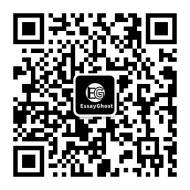DueEssay留学生代写平台,是一家专业高品质的论文代写机构,业务包括:Essay代写、assignment代写、网课代修、quiz代考、final、midterm、论文润色、Cover letter、Personal statement。我们不盲目以低价来吸引客户,我们只以优质的服务和认真负责的态度来赢得客户的信赖和支持。
英国伦敦大学coursework怎么写?很多同学在初到国外留学的时候不知道coursework格式和写法?导致了很多同学在coursework上吃了亏,DueEssay论文代写网就来为大家讲解一下英国伦敦大学coursework写法介绍:
问题的背景
手机支付是肯尼亚旅游网的原创产品之一,它是一项手机转账服务,使旅游网用户可以与手机网络下的任何用户进行资金的支出和接收。这项服务由沃达丰公司承担发展的。沃达丰公司持有旅游网35%的股份。”M”代表的是手机,”Pesa”在斯瓦希里语中代表的钱。自从2007年3月份引进以来,手机支付系统广受欢迎,带动了无银行账户用户的剧增,也使得这一应用在全国范围内取得巨大成功。例如,从2007年3月份到2008年9月,手机支付个人对个人转账金额已达到540亿先令,仅仅去年12月份就额外增加了140亿先令。手机支付平台的应用不仅仅只是一个成就而已。如今,你可以用你的手机来打车,支付电费,也可以不用插卡甚至无需银行账户便可从自动取款机中取出钱。当然,这也给银行业带来了不安。但这毫无意义,因为大部分肯尼亚人居住在较偏远的地区,周边很少有银行,所以无法使用银行的相关服务。
BACKGROUND OF THE PROBLEM
M-Pesa is one of the ingenious innovation products of Safari-com Kenya,it is a mobile money transfer that enables Safari-com subscribers to send and receive money to anyone of the mobile network.It was developed by Vodafone,which holds a 35%share in Safari-com.The“M”stands for mobile.Pesa is Swahili for money.Since its introduction in March of 2007,the M-PESA money transfer system has seen its popularity with the un-banked population surge,making the application a great success all over the country.For example,between March 2007 and September 2008,M-pesa person to person transfers hit the Sh54 billion mark with December alone last year accounting for an additional Sh14 billion.To call M-PESA a success would be an understatement.Today you can use your phone to pay for cab rides and electricity,to get money out of ATMs without owning an ATM card or even having a traditional bank account.This has caused jitters in the banking industry.It is worthy noting here that most of the Kenya’s live in local remote areas and do not have access to banking services.
The M-PESA service does not require users to have bank accounts.All they need to do is register at an authorized M-PESA agent by providing their Safari-com mobile number and their identification card.Once registered,the user can buy digital funds at any M-Pesa agent and send that electronic cash to any other mobile phone user in Kenya by SMS.Recipients can either redeem this for conventional cash at M-Pesa agent outlets or buy Safari-com airtime for themselves and other subscribers.An M-Pesa-enabled mobile phone can also function as an electronic wallet,holding up to€500(50,000 Kenyan shillings).
The service has lowered transaction costs for users in terms of money,time and risk.An urban dweller that used to send money to his nuclear family,other relatives or anyone else using the post office,bus services or friends traveling home can now remit funds quickly and safely for a small fee.The recipient can then obtain cash using an M-pesa agent of choice.The service is being used to make payments for lower value goods and services,thus increasing the velocity of business.You can haggle with a hawker on the street and make an electronic payment for whatever you buy.
Instead of traveling upcountry to pay school fees or cater for unforeseen expenses,parents can now agree with friends or teachers to make payments on their behalf after getting the money transferred electronically to them.People who were too poor to open a bank account can now have a transaction account at their disposal.Only about 2 million Kenyans have bank accounts out of a population of around 36 million.Therefore,the potential to broaden access to financial services is massive.Though the product has is clearly gained prominence among the low income earners,high income earners Small and medium organizations it has not gone down well with the major Banking key players who are opposing it.90%of Kenyans do not have an account in a regular bank.Across Africa,only 20%of families have formal bank accounts,according to a World Bank survey.In Tanzania the percentage is as low as 5%,and in Liberia 15%.But the proliferation of mobile telephone services around the continent has opened a new way to extend financial service
1.1 Research questions
What are the financial needs that M-Pesa meets as an agent of money transfer?
Is the M-Pesa product reliable and accessible in meeting the financial needs in Kenya?
1.2 Research Objectives
1.To find out the effects/contributions of M-Pesa as a product of Safari com to society
2.Find out the impacts of M-Pesa in the banking sector in Kenya
3.To find out who are the main population segments targeted by M-Pesa product in Kenya
4.To find out the methodologies used by Safari com as an M-Pesa provider to satisfy customers needs
理性研究——RATIONALE OF THE RESEARCH
Known as M-pesa,or mobile money,the service is expected to revolutionize banking in a country where more than 80%of people are excluded from the formal financial sector.
Apart from transferring cash;a service much in demand among urban Kenyans supporting relatives in rural areas,customers of the Safaricom network will be able to keep up to 50,000 shillings(£370)in a“virtual account”on their handsets.
Mobile phone growth in Kenya,as in most of Africa,has been remarkable,even among the rural poor.In June 1999 Kenya had 15,000 mobile subscribers.Today it has nearly 8 million out of a population of 35 million.
In time,M-pesa will allow people to borrow and repay money,and make purchases.Companies will be able to pay salaries directly into workers’phones;something that has already attracted the interest of larger employers,such as the tea companies,whose workers often have to be paid in cash as they do not have bank accounts.
The M-pesa project is being watched closely by mobile operators around the world as a way of targeting the multibillion pound international cash transfer industry long dominated by companies such as Western Union and Money gram.According to the World Bank,remittances sent from nearly 200 million migrant workers to developing countries totalled£102bn in the year 2007.The GSM Association,which represents more than 700 mobile operators worldwide,believes this could quadruple by 2012 if transfers by SMS become the norm.Vodafone has entered a partnership with Citigroup that would soon allow Kenyans in the UK to send money home via text message.The charge for sending£50 is expected to be about£3,less than a third of what some traditional services charge.
SME’s in Kenya are making use of M-pesa.This is mainly because the service has been found to be liquid,flexible,acceptable,safe and reliable.M-pesa has also had an impact on microfinance institutions since members send virtual funds to their group leader,and the group leaders give the funds to the microfinance organization.
Users can send between 100 Kenyan shillings($1.5)and 35,000 shillings($530)via a text message to a desired recipient;even someone using a different mobile network.The recipient then can obtain the cash from a Safaricom agent by entering a secret code and showing personal identification.
M-pesa gives people too much access(24/7)to their cash which could undermine saving culture.Analysis shows that the M-PESA-based cash transfers

